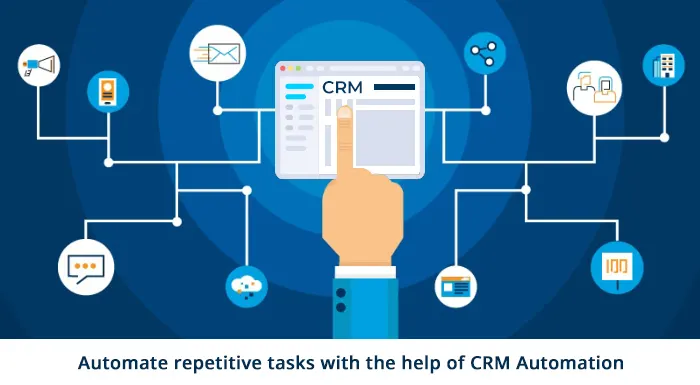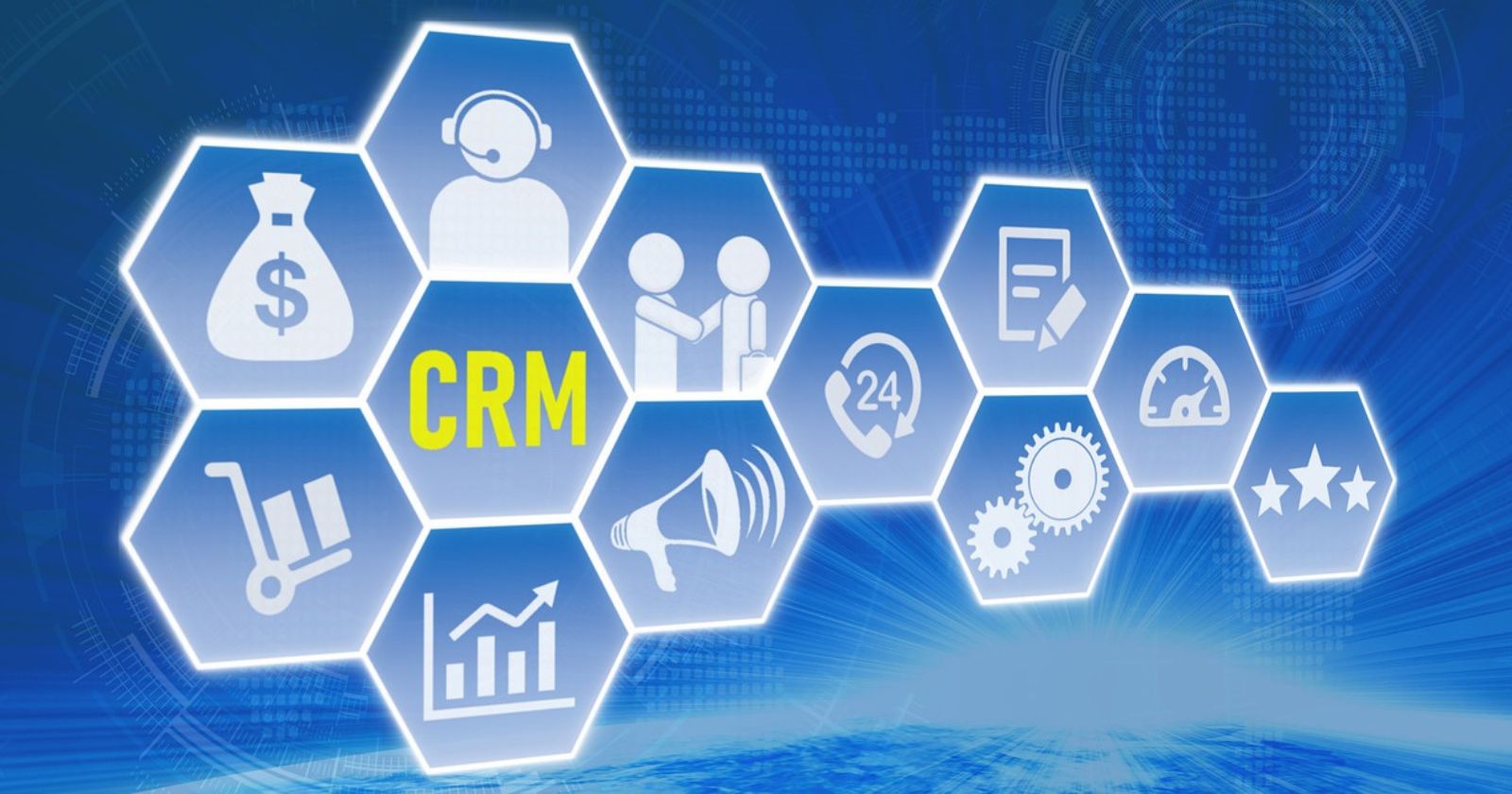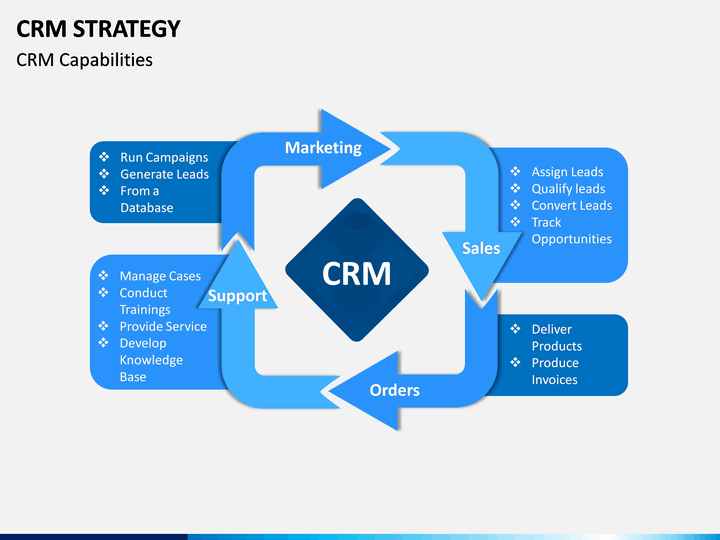CRM Marketing Automation: The Ultimate Guide to Supercharging Your Business Growth

Introduction: Why CRM Marketing Automation Matters
In today’s fast-paced digital landscape, businesses are constantly seeking ways to optimize their operations, enhance customer engagement, and drive revenue growth. One of the most powerful tools available to achieve these goals is CRM marketing automation. But what exactly is it, and why is it so crucial for modern businesses? This comprehensive guide will delve deep into the world of CRM marketing automation, exploring its benefits, best practices, and how to implement it effectively to transform your business.
CRM (Customer Relationship Management) and marketing automation are two distinct yet highly complementary technologies. CRM focuses on managing and analyzing customer interactions and data throughout the customer lifecycle, with the goal of improving business relationships and driving sales growth. Marketing automation, on the other hand, involves using software to automate repetitive marketing tasks, such as email campaigns, social media posts, and lead nurturing. When these two powerful tools are combined, they create a synergy that can revolutionize how businesses engage with their customers and drive results.
CRM marketing automation is the practice of using CRM software to automate marketing activities. This allows businesses to streamline their marketing efforts, personalize customer experiences, and ultimately, increase sales and revenue. It’s no longer just about sending out mass emails; it’s about creating targeted, personalized campaigns that resonate with individual customers based on their behavior, preferences, and interactions with your brand. This level of personalization is what sets successful businesses apart from the competition.
The Core Benefits of CRM Marketing Automation
The advantages of implementing CRM marketing automation are numerous and can significantly impact various aspects of your business. Let’s explore some of the key benefits:
- Increased Efficiency: Automating tasks like email marketing, social media posting, and lead nurturing frees up valuable time for your marketing team. They can then focus on more strategic initiatives, such as content creation, campaign planning, and data analysis.
- Improved Lead Generation and Nurturing: CRM marketing automation allows you to capture leads, segment them based on their behavior and demographics, and nurture them through the sales funnel with targeted content and personalized messaging. This helps to convert leads into paying customers more effectively.
- Enhanced Customer Engagement: By personalizing your communications and tailoring your messaging to individual customer preferences, you can significantly improve customer engagement. This leads to stronger customer relationships and increased brand loyalty.
- Higher Conversion Rates: Targeted marketing campaigns and personalized experiences are far more effective than generic, mass-market approaches. CRM marketing automation helps you to optimize your campaigns for maximum conversion rates, leading to increased sales and revenue.
- Better Data Analysis and Reporting: CRM systems provide valuable insights into customer behavior and campaign performance. Marketing automation tools integrate with CRM systems, allowing you to track key metrics, analyze results, and make data-driven decisions to optimize your marketing efforts.
- Reduced Costs: Automating marketing tasks can significantly reduce labor costs and improve the efficiency of your marketing budget. You can achieve more with less, freeing up resources for other areas of your business.
Key Features of CRM Marketing Automation Software
To effectively leverage the power of CRM marketing automation, you’ll need the right software. Here are some of the essential features to look for:
- Contact Management: A robust CRM system is the foundation for any successful marketing automation strategy. It allows you to store and manage all of your customer data, including contact information, purchase history, and interaction history.
- Lead Scoring and Segmentation: Lead scoring allows you to prioritize leads based on their engagement and behavior, while segmentation allows you to group leads and customers based on various criteria, such as demographics, interests, and purchase history.
- Email Marketing Automation: This feature allows you to automate email campaigns, including welcome emails, nurture sequences, and promotional emails. You can also personalize your emails based on customer data and behavior.
- Social Media Integration: Many CRM marketing automation tools integrate with social media platforms, allowing you to schedule posts, track social media engagement, and manage your social media presence from a single dashboard.
- Workflow Automation: Workflow automation allows you to automate complex marketing processes, such as lead nurturing sequences, onboarding processes, and customer support workflows.
- Reporting and Analytics: Robust reporting and analytics features are essential for tracking your campaign performance, identifying areas for improvement, and making data-driven decisions.
- Landing Page Creation: Some CRM marketing automation tools offer built-in landing page creation features, allowing you to create optimized landing pages to capture leads and promote your products or services.
- Integration with Other Tools: Ensure your chosen software integrates with other essential tools, such as your website, e-commerce platform, and other marketing platforms.
Choosing the Right CRM Marketing Automation Software
Selecting the right CRM marketing automation software is a critical decision that can significantly impact the success of your marketing efforts. Here are some key factors to consider when making your choice:
- Your Business Needs: Carefully assess your business needs and requirements. Consider the size of your business, your marketing goals, and the features you need to achieve those goals.
- Scalability: Choose a software solution that can scale with your business as it grows. You don’t want to outgrow your software too quickly.
- Ease of Use: The software should be user-friendly and easy to navigate. Look for a platform with a clean interface and intuitive features.
- Integration Capabilities: Ensure the software integrates with your existing tools and platforms, such as your website, e-commerce platform, and other marketing tools.
- Pricing: Compare pricing plans and choose a plan that fits your budget and your business needs. Consider both the upfront costs and the ongoing subscription fees.
- Customer Support: Choose a software provider that offers excellent customer support. This is crucial for getting help when you need it and resolving any technical issues.
- Reviews and Ratings: Research the software and read reviews from other users. This can give you valuable insights into the software’s strengths and weaknesses.
Some of the leading CRM marketing automation software solutions include:
- HubSpot: A comprehensive platform that offers a wide range of marketing, sales, and customer service tools.
- Salesforce: A robust CRM platform with extensive marketing automation capabilities.
- Marketo (Adobe Marketo Engage): A powerful marketing automation platform designed for large enterprises.
- ActiveCampaign: A user-friendly platform that offers a wide range of automation features, including email marketing, lead nurturing, and sales automation.
- Zoho CRM: A versatile CRM platform with integrated marketing automation features.
Implementing CRM Marketing Automation: A Step-by-Step Guide
Implementing CRM marketing automation can seem daunting, but with a well-defined plan, you can achieve success. Here’s a step-by-step guide to get you started:
- Define Your Goals and Objectives: Before you start, clearly define your marketing goals and objectives. What do you want to achieve with CRM marketing automation? Increase leads? Boost sales? Improve customer engagement? Having clear goals will help you measure your success.
- Choose the Right Software: Select the CRM marketing automation software that best fits your business needs and budget. Consider the factors discussed earlier, such as features, scalability, and ease of use.
- Clean and Organize Your Data: Ensure your customer data is clean, accurate, and up-to-date. This is crucial for effective segmentation and personalization.
- Segment Your Audience: Divide your audience into segments based on their demographics, behavior, interests, and purchase history. This will allow you to create targeted campaigns that resonate with each segment.
- Create Targeted Content: Develop high-quality, engaging content that caters to the specific needs and interests of each segment. This includes blog posts, ebooks, videos, and other types of content.
- Design Automated Workflows: Create automated workflows to nurture leads, onboard new customers, and provide ongoing support. This includes setting up email sequences, lead scoring rules, and other automated processes.
- Test and Optimize Your Campaigns: Regularly test your campaigns and make adjustments based on the results. A/B test your email subject lines, content, and calls to action to optimize your conversion rates.
- Track Your Results and Analyze Your Data: Continuously track your results and analyze your data to identify areas for improvement. Use the reporting and analytics features of your CRM marketing automation software to gain insights into your campaign performance.
- Train Your Team: Provide training to your marketing team on how to use the software and implement the automation strategies.
Best Practices for CRM Marketing Automation
To maximize the effectiveness of your CRM marketing automation efforts, it’s important to follow these best practices:
- Personalize Everything: Use customer data to personalize your communications and tailor your messaging to individual preferences.
- Segment Your Audience: Divide your audience into segments based on their demographics, behavior, and interests.
- Create Valuable Content: Provide your audience with high-quality, engaging content that addresses their needs and interests.
- Automate at the Right Time: Don’t automate everything. Focus on automating repetitive tasks and processes that can save time and improve efficiency.
- Test and Optimize Constantly: Regularly test your campaigns and make adjustments based on the results.
- Monitor Your Performance: Track key metrics, such as open rates, click-through rates, and conversion rates, to measure the effectiveness of your campaigns.
- Stay Compliant: Ensure your marketing practices comply with all relevant regulations, such as GDPR and CAN-SPAM.
- Integrate with Other Tools: Integrate your CRM marketing automation software with other essential tools, such as your website, e-commerce platform, and social media platforms.
- Provide Excellent Customer Service: Use CRM marketing automation to enhance your customer service efforts. Respond to customer inquiries promptly and provide personalized support.
- Continuously Improve: CRM marketing automation is an ongoing process. Continuously evaluate your efforts, identify areas for improvement, and make adjustments as needed.
CRM Marketing Automation and the Customer Journey
Understanding the customer journey is crucial for leveraging the power of CRM marketing automation. The customer journey is the process a customer goes through from the first interaction with your brand to becoming a loyal customer. CRM marketing automation can be used at every stage of the customer journey to enhance the customer experience and drive results.
- Awareness: At the awareness stage, potential customers are just learning about your brand. You can use marketing automation to create awareness through social media campaigns, search engine optimization (SEO), and paid advertising.
- Interest: Once potential customers are aware of your brand, they may start showing interest in your products or services. You can use marketing automation to nurture these leads with targeted content, such as ebooks, webinars, and case studies.
- Decision: At the decision stage, potential customers are considering whether to purchase your products or services. You can use marketing automation to provide them with the information they need to make a decision, such as product demos, testimonials, and special offers.
- Action: Once a customer makes a purchase, you can use marketing automation to onboard them, provide ongoing support, and encourage repeat purchases.
- Loyalty: After a customer has made a purchase, you can use marketing automation to build loyalty through personalized communications, exclusive offers, and rewards programs.
The Future of CRM Marketing Automation
CRM marketing automation is constantly evolving, and the future looks bright. Here are some trends to watch out for:
- Artificial Intelligence (AI): AI is already playing a significant role in CRM marketing automation, and its impact will only continue to grow. AI can be used to personalize customer experiences, automate tasks, and provide valuable insights into customer behavior.
- Hyper-Personalization: Customers are increasingly expecting personalized experiences. CRM marketing automation will continue to evolve to meet this demand, with businesses leveraging data to create highly targeted and personalized campaigns.
- Omnichannel Marketing: Customers interact with brands across multiple channels, including email, social media, and mobile. CRM marketing automation will become even more integrated, allowing businesses to manage and automate their marketing efforts across all channels.
- Focus on Customer Experience: The focus of CRM marketing automation will shift even more towards the customer experience. Businesses will use automation to create seamless and personalized experiences that build brand loyalty.
- Increased Integration: CRM marketing automation tools will continue to integrate with other essential tools, such as e-commerce platforms, social media platforms, and customer service platforms.
Conclusion: Embrace the Power of CRM Marketing Automation
CRM marketing automation is a powerful tool that can transform your business. By automating your marketing efforts, personalizing customer experiences, and analyzing your results, you can increase efficiency, improve lead generation, enhance customer engagement, and drive revenue growth. By following the best practices outlined in this guide and staying up-to-date with the latest trends, you can harness the full potential of CRM marketing automation and achieve your business goals. Don’t delay – embrace the power of CRM marketing automation and take your business to the next level!



